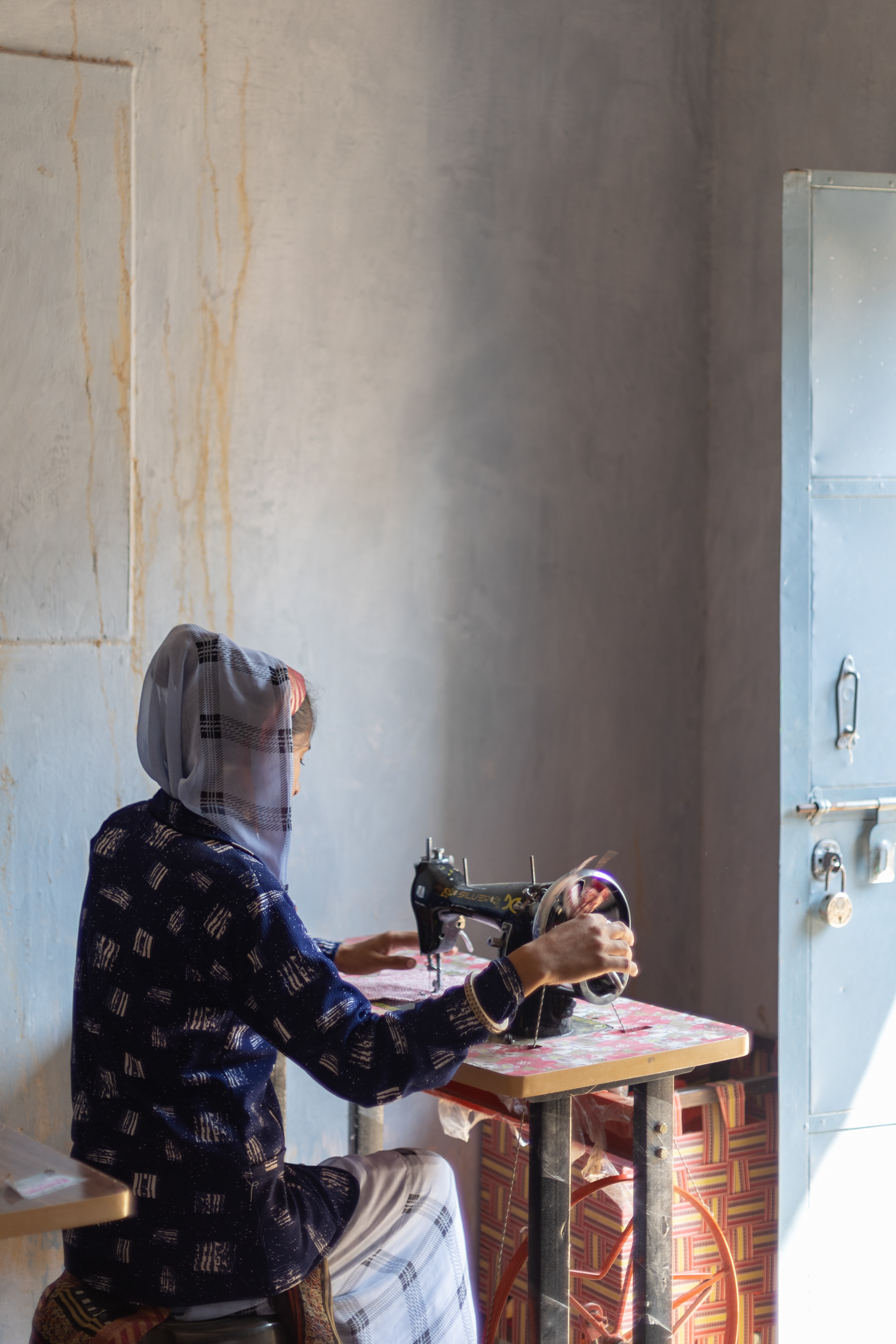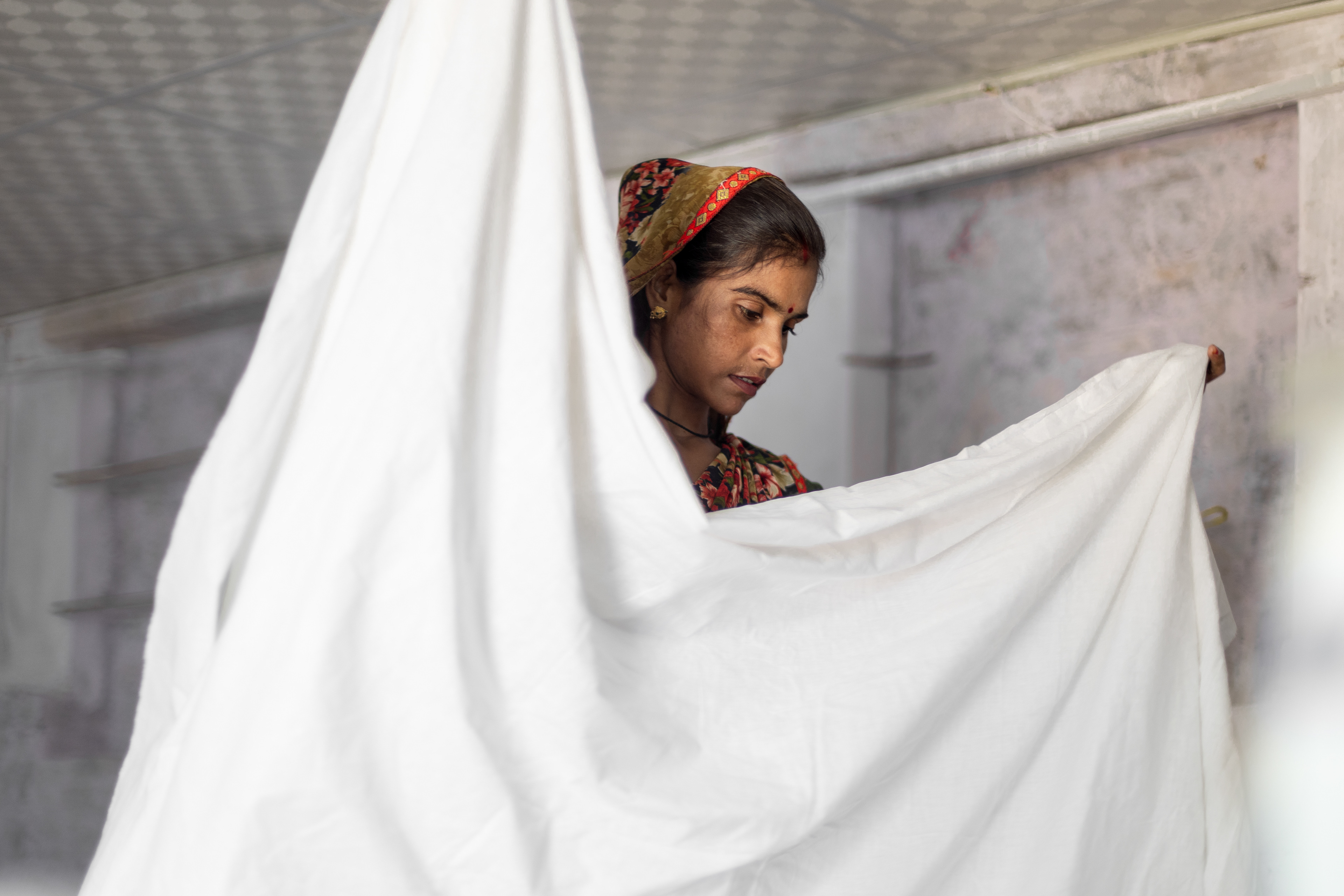"हम | When Women Lead" is a powerful tribute to the extraordinary journeys of 75 women leaders from diverse backgrounds across India. These women have transcended barriers, defied limits, and made lasting impacts on their communities. This book celebrates not just their resilient spirit but also their concrete contributions to nation-building. In keeping with the spirit of women’s leadership, "हम | When Women Lead" was crafted by an all-women team of writers, photographers, visual artists, and editors. I had the incredible opportunity to be part of this amazing team as one of the nine photographers. My journey took me to the remote parts of Rajasthan, where I documented the incredible stories of 11 resilient women leaders who are making a difference in their communities.
Kavitha Charpota, Banswara, Rajasthan
In Kavita’s native village. Banswara young girls are expected to drop out of school after the eighth grade. Only in the 10th grade, Kavita made it a mission to persuade her community about the importance of education, health, and decision-making for young women. Among her many achievements is her central role in connecting women from low-income families to self-help groups to help improve their livelihood. Kavitha Choota’s leadership exemplifies the power of grassroots efforts in empowering women. A model of leadership, deeply rooted in community, community, engagement, and collective action has not only transformed the lives of many in Banswara but also serves as an inspiring blueprint for sustainable development and empowerment at the community level.
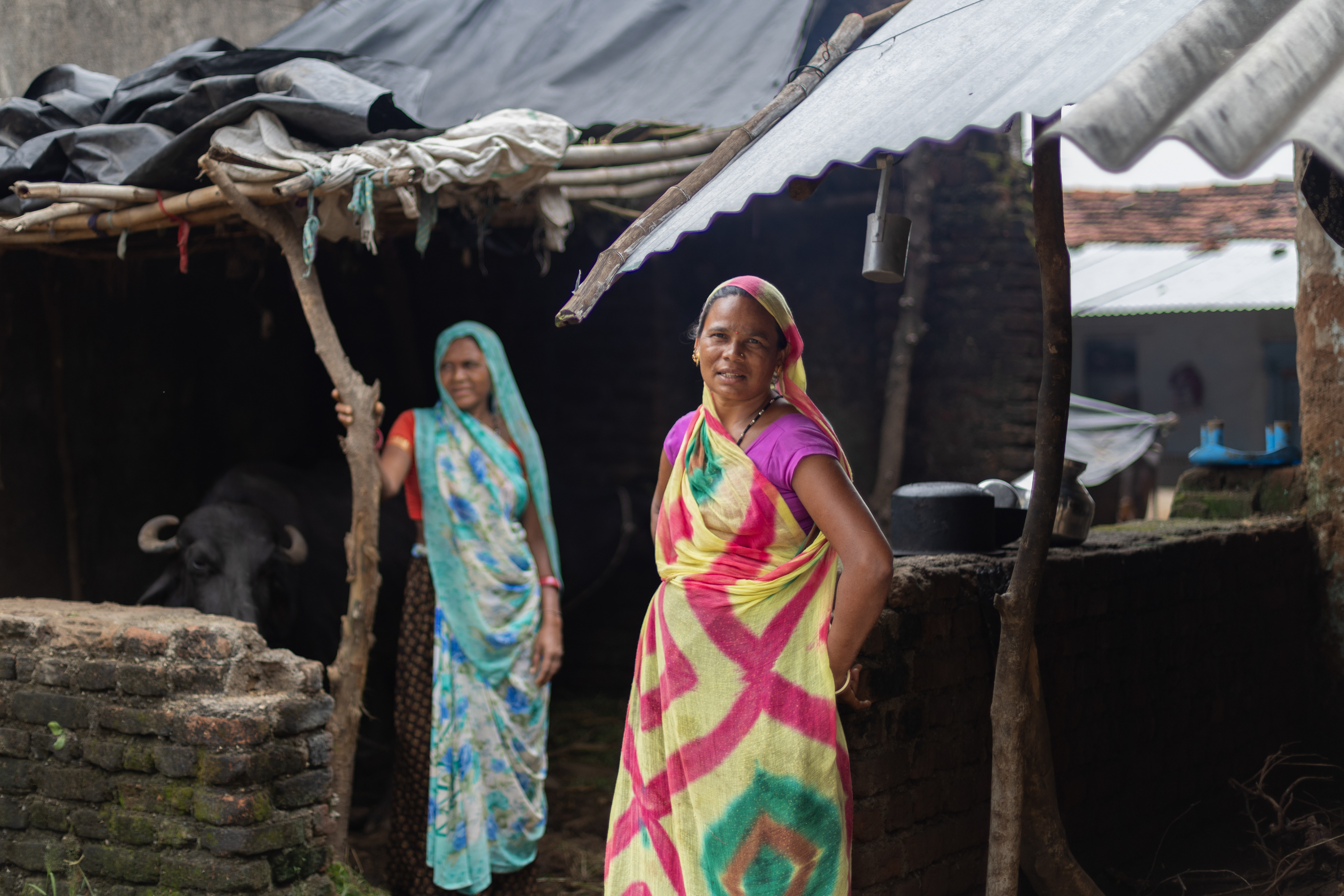
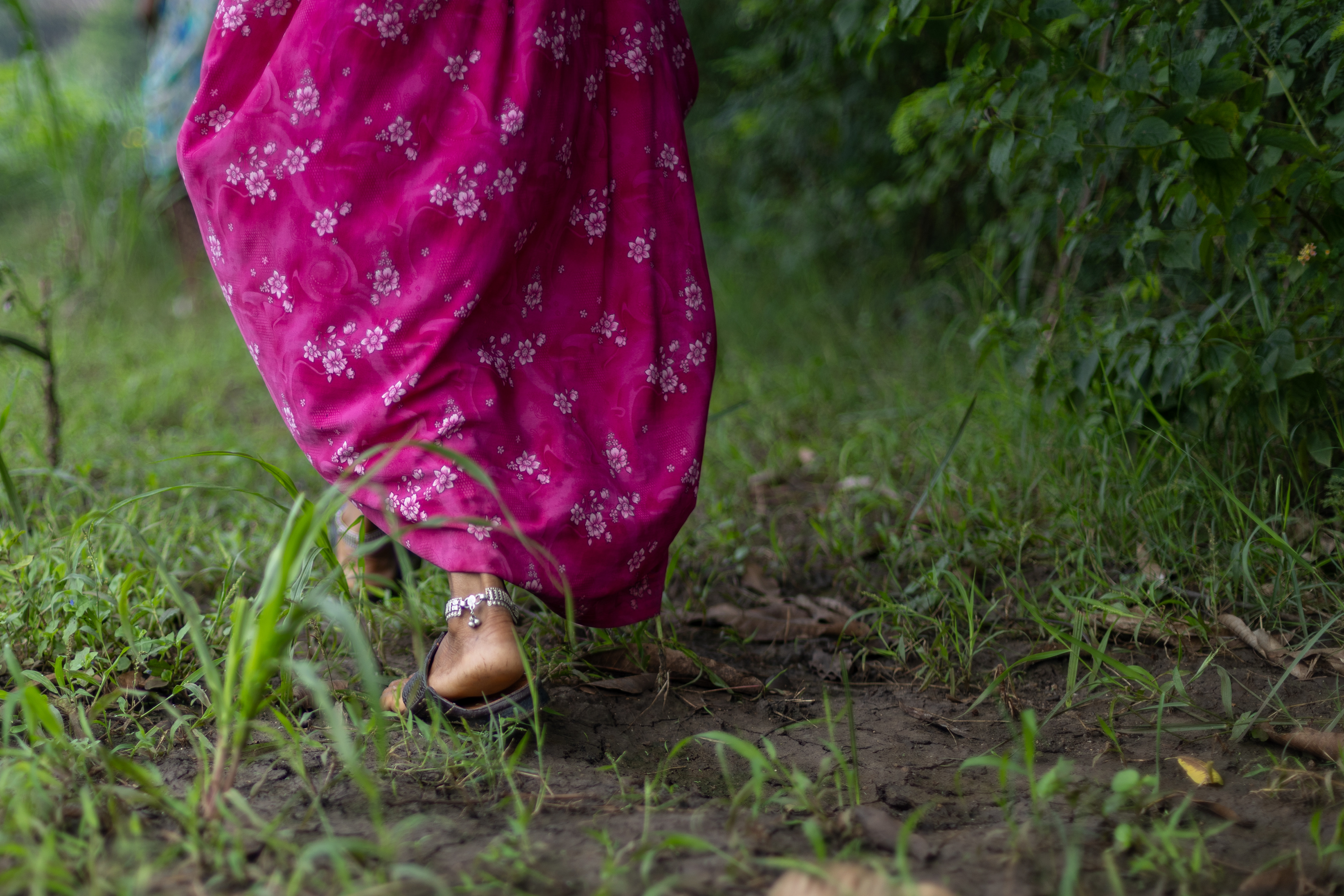
Ruma Devi, Barmer, Rajasthan
Ruma Devi head designer of Gramin Vikas Evam Chetna Sansatham and the founder of the Ruma TDevi foundation comprising three 30,000 women across 250 villages in Rajasthan is a tribal Rajasthan, the wife of a farmer. The journey began for Ruma with marriage and childbirth married at 17. She lost her baby because she did not have money for treatment. Determined never to be financially dependent again. Ruma decided to start a business, but the only skill she possessed, a legacy of a grandmother was embroidery. She realized that she needed more than just needles and thread as a stock in trade and convinced 10 women to join her in investing in sewing machines. Then they managed to secure a trial order from GVCS and their journey began.
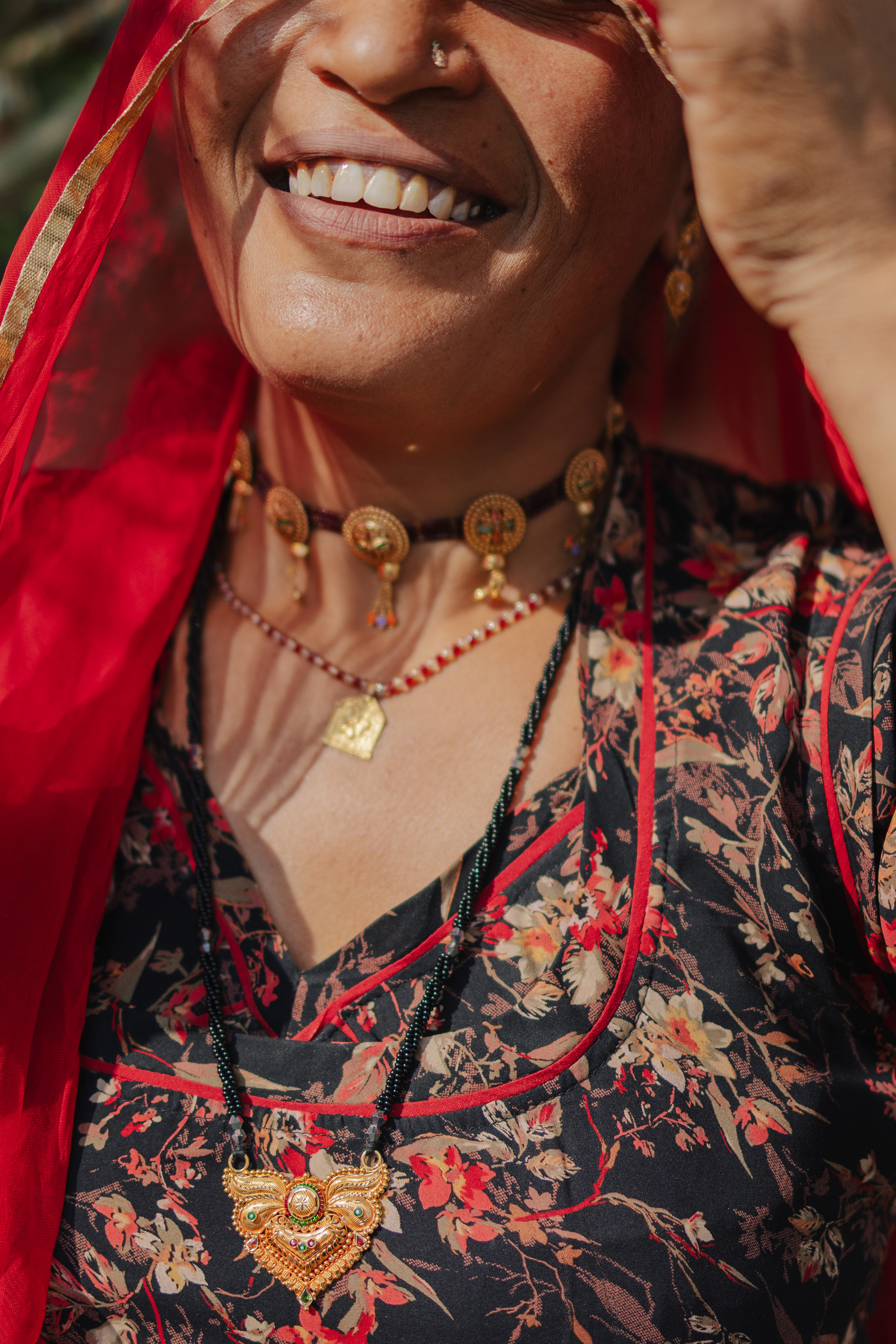
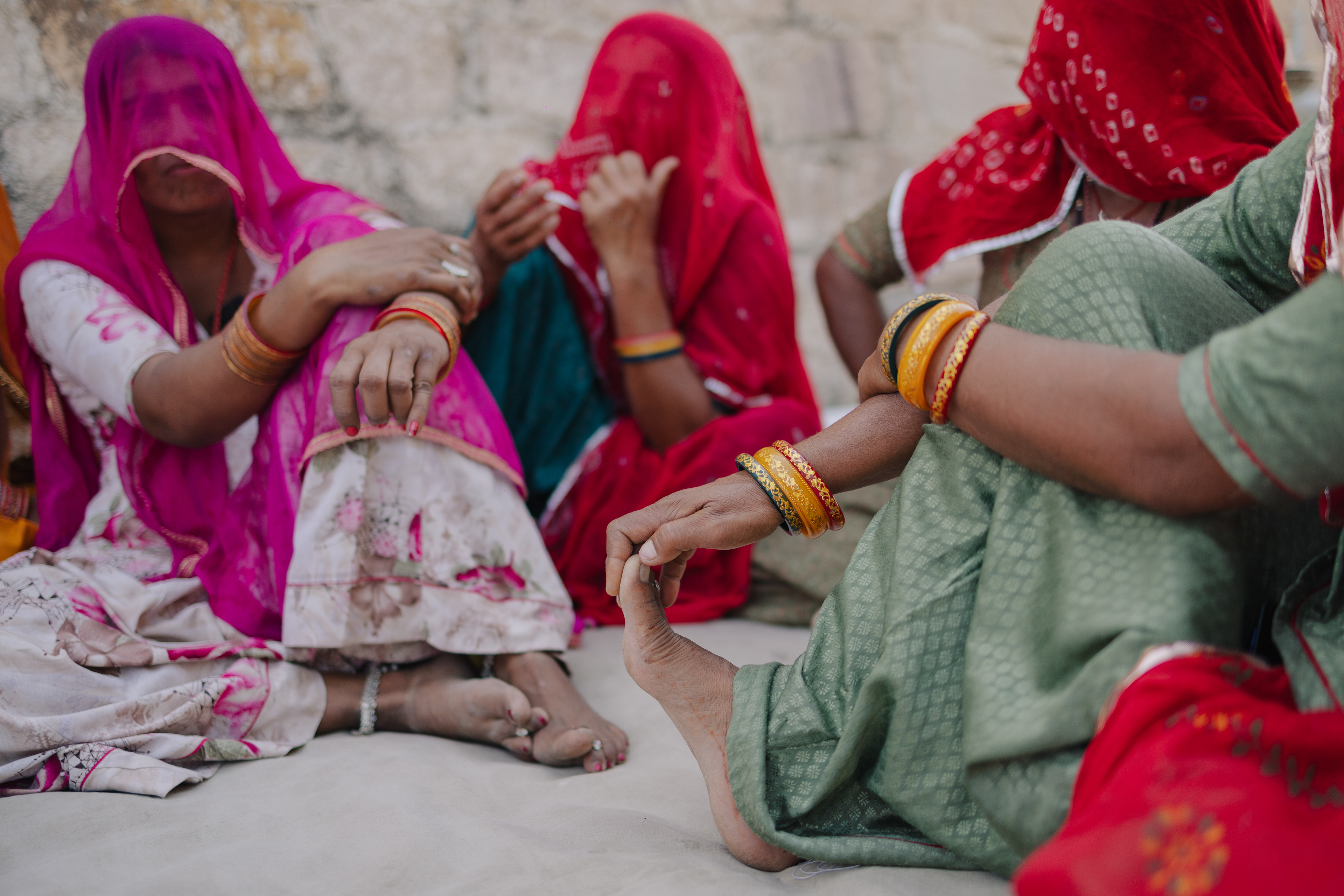
Aravani Art Project, Bangalore, Karnataka
Avani Art Project was founded by Poornima Sukumar in 2016 and named after the Aravani festival where thousands of transgender individuals celebrate communication with Lord Aran. This art collective is a for-profit organization enabling trans artists to find work that allows them to live with dignity. Started as an experiment to enable the integration of the trans community into mainstream society. Today the project spans 40 artists across four cities with art commissions across the subcontinent from Ladakh to Sri Lanka. It has given the community, a platform of expression, a respectable vocation, a chance to live in dignity, and most of all a bridge for the community to understand the world beyond their binary.
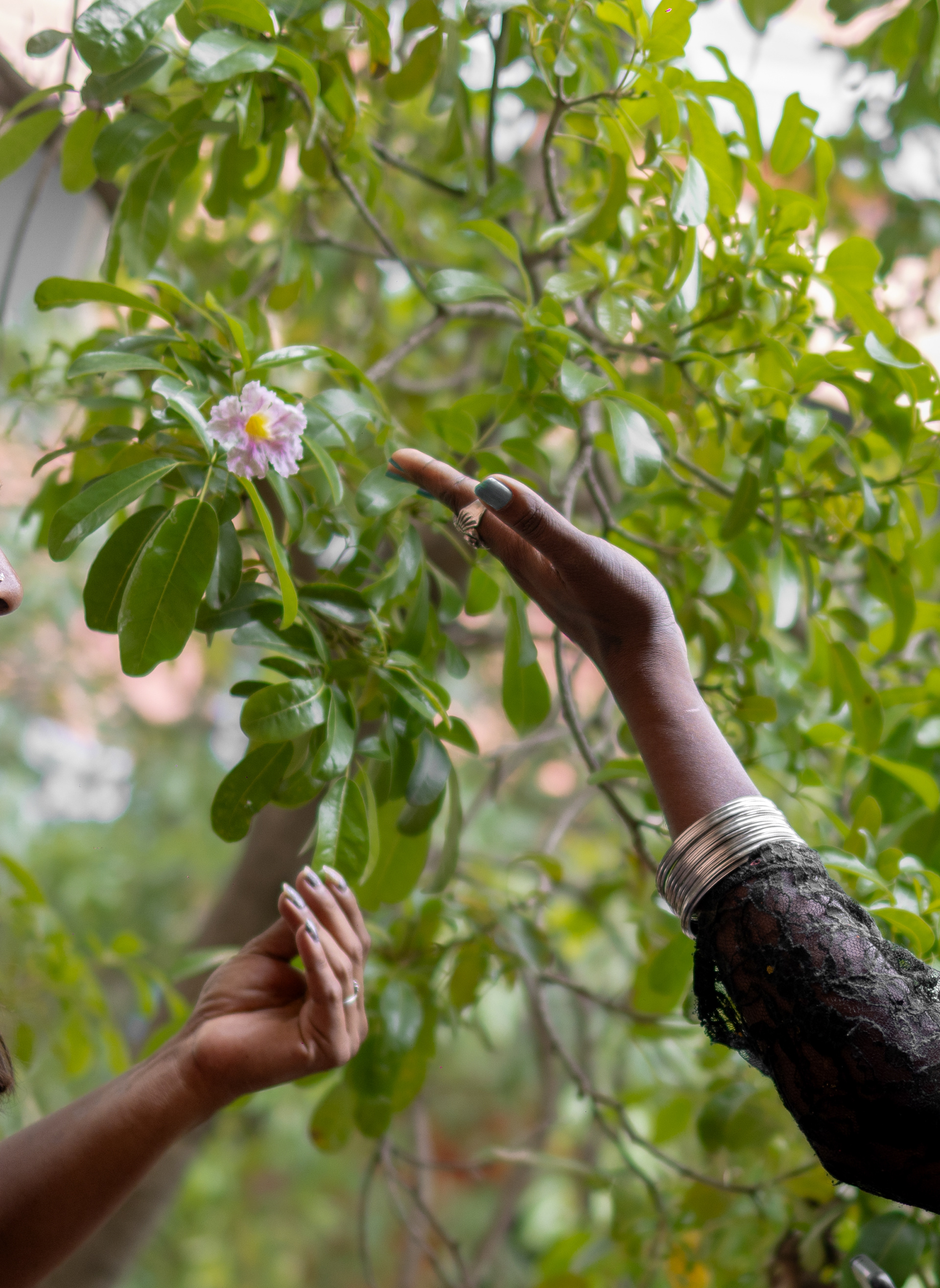
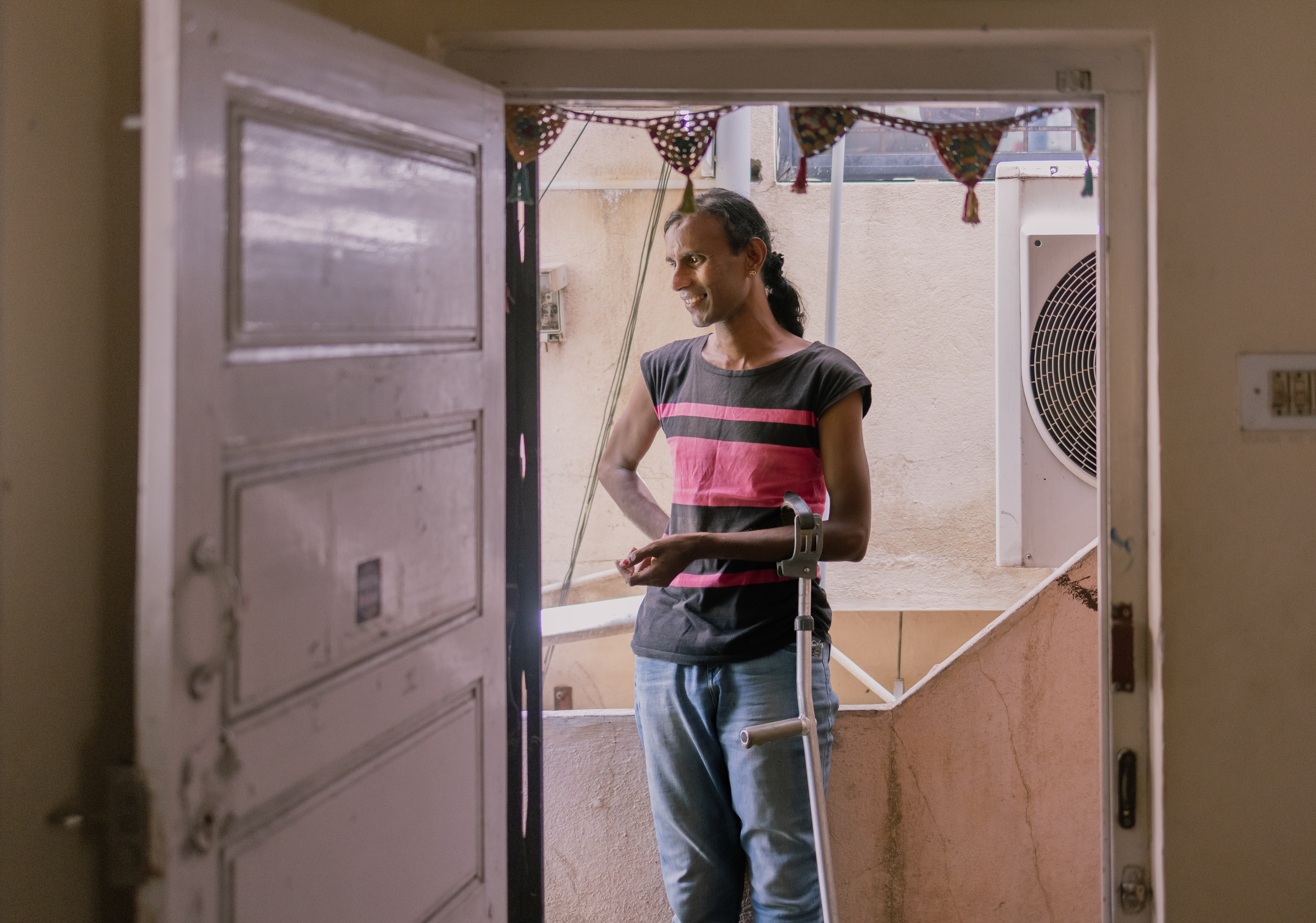
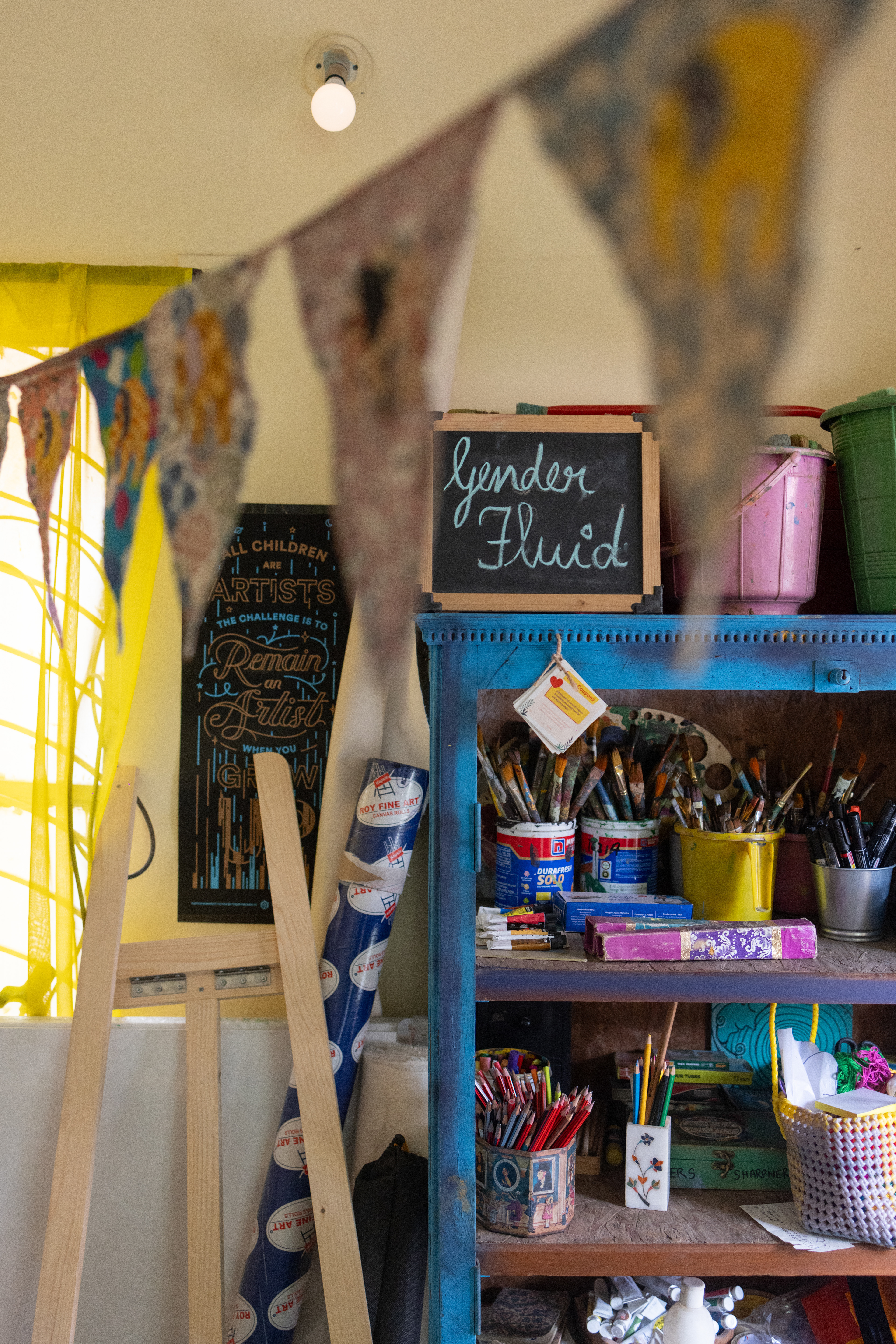
Pinky Jain, Jaipur, Rajasthan
In 2020 Pinky Jain co-founded Mysa, an impact organization set up to help women stand on their feet, and an IIT alum with a background in garments. Pinky decided to make a fresh start after the pandemic. Pinky set out to empower women by offering them economic and emotional tools to change. She began the process of building a community of rural women, entrepreneurs training, 100 women in maths, color mapping, design, thinking, and skill training in different crafts to make them industry-ready. As with many such initiatives for women, Manasa‘s work has not remained limited to making and selling products, but the community of women has come together to help each other taking up cases of domestic violence, child marriage, and caste discrimination. There is even a library for girls run by girls that was set up recently.
